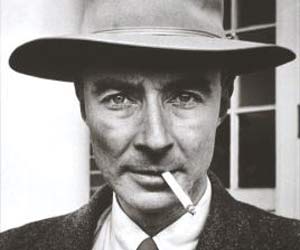Genius: The Life and Science of Richard Feynman
Select Format
Select Condition 
Book Overview
To his colleagues, Richard Feynman was not so much a genius as he was a full-blown magician: someone who "does things that nobody else could do and that seem completely unexpected." The path he... This description may be from another edition of this product.
Format:Paperback
Language:English
ISBN:0679747044
Release Date:November 1993
Publisher:Vintage
Length:531 Pages
Weight:1.19 lbs.
Dimensions:8.0" x 1.3" x 5.2"
Customer Reviews
5 ratings
A Rare Biography
Published by Thriftbooks.com User , 18 years ago
There are a couple of biographies that ascend beyond the level of our expectations, William Manchester's two-volume biography of Churchill is one, and "Genius" is another. Dick Feynman makes a biographer's work easier, the depth of his character, genius, and humor are limitless. Physicist Richard Feynman was also an accomplished safecracker, the inventor of QED (quantum electrodynamics), and whatever he turned his hand to, be it bongo drums or painting, the results were invariably immortalized in museums or symphony orchestras. Feynman famously dipped an O-Ring into ice water to demonstrate the cause of the Challenger disaster, and estimated the kilotonnage yielded at the Trinity test by observing the displacement of a handful of shredded paper. Feynman was no slouch as a writer himself, penning "Surely You're Joking, Mr. Feynman", "Adventures of a Curious Character", and "The Pleasure of Finding Things Out." James Gleick has written a number of books, beginning with "Chaos" a good introduction to the science, and he has progressed as a writer to works like "Faster", "What Just Happened", and "Isaac Newton." A finalist for the National Book Award, "Genius" is Gleick's finest work and undeservedly missed out.
Feynman, A Genius
Published by Thriftbooks.com User , 18 years ago
In Genius by James Gleick, the author writes a complete biography of Richard Feynman, spanning his entire life and achievements. Richard Feynman went to MIT and then Princeton, helped create the atomic bomb at Los Alamos, and worked at Cornell and Caltech. He was a very imaginative thinker with new, creative ideas. His work with quantum electrodynamics won him a Nobel Prize. He had to overcome the death of his wife and had to acknowledge that his friend at Los Alamos was a Russian spy. The author was compelled to recount the story because Richard Feynman was a very interesting man with a lively personality who was also a genius. He also had a very interesting life. The book not only discusses Feynman's life, but his contemporaries' lives as well. It brings the world of cutting-edge physics to the average person, in language that they can understand. Someone would be compelled to read this book because it has enough science for those that are interested, at the same time having enough human interaction for someone who does not have a science background. The book presents Feynman on a very personal, human level. He had a charismatic personality, an exciting life, and made great contributions to the field of science.
A more sober look at Feynman
Published by Thriftbooks.com User , 18 years ago
Many accounts of Feynman read as a sequence of gee-whiz feats of dazzling theatricality. Gleick's take on him is more measured. The author nevertheless manages to capture the irreverent spirit and ebullient persona of this larger-than-life physicist while using everyday language to describe the latter's brilliant contributions to quantum electrodynamics (QED). Throughout the book, Gleick gives us many instances that showcase Feynman's lifelong refusal to abide by what he considered pointless or hypocritical social norms. He carried over this unorthodoxy to his work, often coming up with approaches often considered bizzarre by his peers, to deal with the conundrums of QED. In deft language and simple analogies, Gleick outlines the developments of quantum mechanics until Feynman's time. The author them goes on to describe the renormalization approach of Feynman, Schwinger and Tomonaga that offered an ingenious method of removing the puzzling self-interaction terms that would otherwise lead to infinite (unphysical) field quantities. In chronicling Feynman's life, Gleick gives us vivid vignettes of the physicist's encounters with the other luminaries in his field, his refusal to accept anything unquestioningly, the sheer energy, originality and versatality with which he approached every aspect of his life and his often messy and volatile relationships with women. Paying tribute to Feynman's genius while portraying the many aspects of this brilliant persona is a daunting task; Gleick has risen to the monumental challenge with grace and profound insight.
Not just the life of Feynman, but Feynman's view of life.
Published by Thriftbooks.com User , 25 years ago
A man as brilliantly lucid as Richard Feynman deserves a biography equally brilliant and lucid. James Gleick achieves this. And though Richard Feynman is painted in human tones, the reader still experiences the mystique which surrounded this legend of science.Some of the most enjoyable sections of this book deal not with physics or biography, but Feynman's philosophy and refreshingly rational worldview.This book is a testament to the power and beauty of a great intellect, in its all its humanity.My only reservation with this otherwise astounding book is that it was, at times, a bit too glowing and not critical enough. Feynman is presented as a scientific hero, but as we all know too well, even heros are not without their faults. As for these, as Feynman himself said, "it does no harm to the mystery to know a little about it."
A wonderful book about Feynman
Published by Thriftbooks.com User , 27 years ago
This is by far the best biography about Richard Feynman to date. All the others, even the ones written after this book, pale in comparison. It is wonderfully written. It lets you see and feel Feynman not only as one of the giants in 20th century physics, but perhaps more importantly, as a human, with his passion, his idiosyncracies, and the same struggles and pain he had to go through just like everyone else. Ironically, Gleick never met Feynman, which goes to show how great a writer he is. I never spoke to Feynman, but he was invited to our freshman physics classes once (at Caltech), shortly before he died. I remember waking up the morning after he died, found out about it, and was very much saddened, and saw the banner "We love you Dick" hung across the Milliken Library on the Caltech campus. For readers who never met or saw Feynman in person, this is truly a great biography. I read it a few years ago, and I still recommend it to my friends all the time. -- Ed Lee, Santa Barbara.
Genius: The Life and Science of Richard Feynman Mentions in Our Blog

Oppenheimer Reading List
Published by Ashly Moore Sheldon • July 27, 2023
Featuring a glittering, star-studded cast, Christopher Nolan's brilliant new film charts the turbulent life of J. Robert Oppenheimer, the theoretical physicist who played a significant role in developing the first atomic bombs. If you enjoyed the movie, here's your chance to learn more about this fascinating chapter from history.

The Science of A Wrinkle in Time
Published by Beth Clark • November 29, 2018
You don't have to be an expert in theoretical cosomology or quantum physics to love Madeline L'Engle's A Wrinkle in Time, but if your sense of wonder or insatiable curiosity is fascinated by the science of it, we're about to make your inner nerd very happy.






